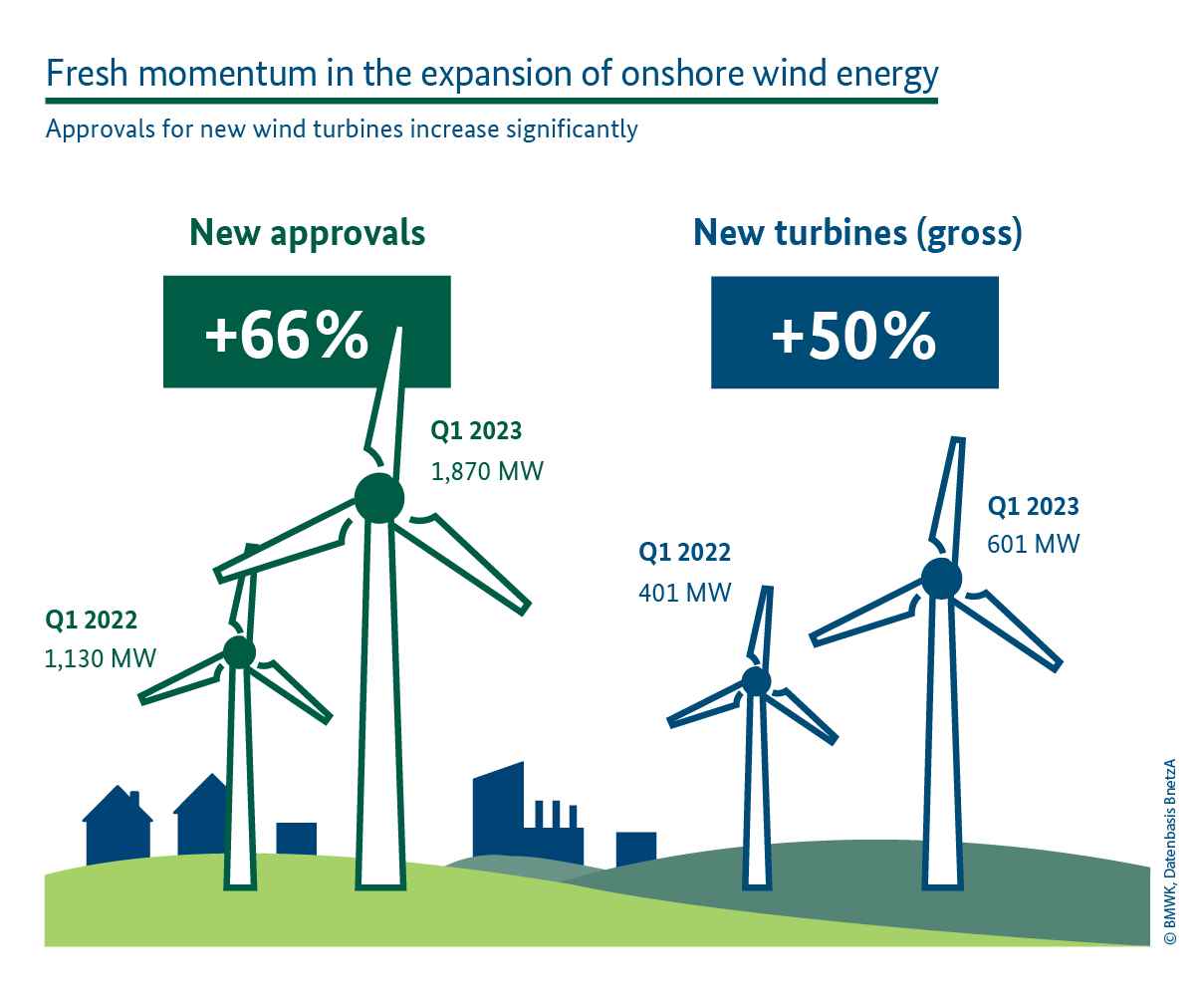Significantly more approvals for onshore wind energy
Wind projects must be approved and built faster if Germany is to achieve its targets for the expansion of renewable energy. In the first quarter of 2023, the expansion and above all the number of approvals for new wind turbines increased significantly on the previous year.
 © BMWK, Datenbasis BnetzA
© BMWK, Datenbasis BnetzA
Federal Ministry for Economic Affairs and Climate Action, data basis Federal Network Agency
“Onshore wind energy is key to our energy supply,” said Federal Minister Robert Habeck at the second wind summit in Berlin, emphasising, “We are already reaping the first rewards of this work: in terms of construction and approvals, there are positive signals.”
And these signals are clear: while wind turbines with a capacity of 401 megawatts (MW) became operational in the first quarter of 2022, 601 MW were added in the same period of 2023. This translates into an expansion of 50%. The increase in approvals was even more pronounced. Plants with a total capacity of 1,130 MW were given the go-ahead in the first quarter of 2022, while from January to March 2023, this figure was 1,870. This amounts to an increase of an impressive 66% compared to the same period in the previous year.
Onshore wind energy is considered – both now and for the long term – one of the cheapest energy technologies for Germany. The amount of wind and the energy demand are highest in winter. Wind energy is therefore also supplemented especially well by renewable energy from photovoltaics (PV), which compensates for the weaker winds in the summer. Wind energy and photovoltaics are regarded as the most important pillars for a climate-neutral electricity supply.

